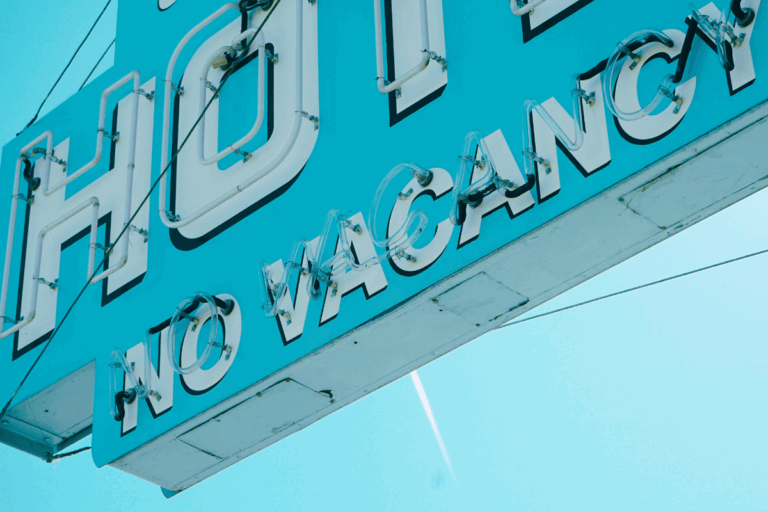‘TMCs need to take a smarter approach to their hotel strategy in 2022 and beyond by adopting technology that gives them control over the highly-fragmented hotel distribution ecosystem, for the benefit of their corporate customers as well as their own bottom line,’ says Eric Meierhans, Chief Commercial Officer at HotelHub.
In this Q&A, he explains why this aspect of travel management is so important for TMCs and buyers in the post Covid-era.
Why is hotel distribution so fragmented, compared with the airline sector?
Hotel distribution in the business travel industry has been very fragmented historically because the GDS systems were primarily developed for TMCs to book airline content only.
Although the GDSs gradually added some hotel content, as the internet and direct online booking took off, hotels had already begun distributing their content via direct connects with leisure portals (booking.com for example), as well as their own websites and online hotel booking agents. As a result, the hotel distribution ecosystem incorporates multiple channels, across which many hotels and rates are duplicated.
The discussion around NDC and the fragmentation of air distribution has only become a hot topic in the last three years. To a certain extent, NDC is marginally fragmenting airline distribution because most of the airlines are still within the GDS – and the NDC format and distribution scheme is more or less standardised across the industry. This is completely different to hotel distribution, which is very non-standardised.
Why is it so important for TMCs to take control of all that hotel content?
Corporate travel buyers require the widest choice of hotel content and best available rates to meet their organisation’s travel policy and programme objectives.
However, GDS hotel content is limited, meaning GDS-centric TMCs face the challenge of delivering seamless access to full content as their consultants have to shop across multiple hotel booking platforms, the web and OTAs (e.g. Expedia, booking.com, hotel websites). Plus, travellers and bookers increasingly feel underserviced by TMCs, as they can access and book richer hotel content online themselves.
TMCs need to take control of all that content to create a better value proposition for their customers, particularly in terms of travel policy compliance. Better content ultimately drives better traveller compliance. This will be even more important going forward as corporates will have very specific duty-of-care and sustainability objectives for their hotel programmes.
What’s the best way for TMCs to create a better value proposition for their customers in terms of hotel content?
Having technology in place like HotelHub allows TMCs to control those different distribution sources.
We uniquely consolidate GDS and non-GDS content from multiple sources (over 2 million hotels worldwide) via one single intuitive web-based platform used by the TMC’s consultants. The platform includes API integration with the corporate client’s preferred OBT, so that the booker or traveller can also access this full hotel content.
HotelHub captures and consolidates online and offline bookings; it is integrated seamlessly with the GDS allowing agency PNR bookings; and can be configured according to the corporate client’s individual travel policy.
If HotelHub pulls content from so many sources, how can TMCs and travel managers know that they are getting the best rate – especially as many hotels are listed across multiple booking channels?
It’s very important for a TMC to have technology in place that doesn’t just aggregate content (because that’s been possible for many years) but instead aggregates and standardises that content across all those different channels.
HotelHub is unique in this respect as it standardises and de-duplicates all the properties. This means that HotelHub displays a single-property view and standardises rates and room types coming back from different channels, whether from a PMS level, a CRS level, a channel manager level, or an aggregator, or the GDS.
We bring all of that content into the HotelHub platform to enable the TMC to compare rates, to give the right choice and shopping options to the corporate via online and offline channels.
What should the travel buyer be focussing on in 2022? What’s your advice?
Mandating the GDS used by your TMC or negotiating directly with hotel suppliers is a thing of the past because of the fragmentation of hotel distribution. And it’s not just fragmentation of hotel providers or hotel aggregators, it’s also hotels themselves and chains who have invested heavily in direct distribution technology and marketing and revenue management.
So, you need your TMC to have the technology that allows them to go and get all this rich content from different sources and different channels, at the same level of promotional rates, distressed inventory, allocations allotment – all those different types of rates that you don’t necessarily get via a single channel.
And to sum up?
In summary, great hotel content will drive greater traveller compliance and a much better user experience, as well as greater incremental revenue for the TMC.
The traveller experience will be the key driver. If their experience booking a hotel with their TMC is the same as when they book independently via another channel, then the traveller will stick to travel policy guidelines and the TMC will gain more hotel attachment to their bookings.







